Introducing Complex Sentences for IELTS.
Good IELTS Teachers direct their Students
Good IELTS teachers understand and refer students to the IELTS band scores to demonstrate areas where a student’s writing needs improvement.
“A problem often seen in student writing is over complicated writing with errors in grammar and inappropriate word choices.“
This is because students may have listened to their teacher’s advice and assumed that complicated writing will produce a higher band score, or they may not understand what a complex sentence is.
This can lead to a poor score and have an overall negative effect on your writing.
This post will look at:
- what ‘complex’ sentences are
- how to form complex sentences
- what ‘complex’ sentences you need in a paragraph
- how to jump from just a plan to a finished essay
A good teacher will explain what an examiner expects to see when marking your essay.
Referring to the examiner’s band descriptors in order to get a Band 6 for grammar a student needs to:
- Use a mix of simple and complex sentences.
For Band 7 they should:
- Use a variety of complex structures.
and for Band 8:
- Use a wide range of complex structures..the majority of sentences are error free.
As you can see complex sentences are a requirement in your writing, but not all sentences need to be complex.
A good Band 8 answer will use a mixture of both simple and complex sentences accurately, so the key to success is to know when to use and use them well.
Understanding what a complex sentence is?
Students often interpret that complex means a long sentence, or a complicated sentence or even one that looks impressive because it uses learnt phrases.
I have seen resources on the internet that encourage this common misconception that suggest using such phrases.
I have also seen the results: students writing very long and grammatically weak sentences that have to be reread to be understandable.
Use reliable IELTS websites, like this one, so you get good advice and avoid wasting your time.
Complex Writing
Let’s look at a section of student writing and see what they do right and wrong.
Here’s where a student got their ideas from for the following piece of writing.
and this is there writing…..
‘In the modern world, plastic is one of the most popular topics causing many environmental difficulties and tough challenges arising from its serious consequences.’
This is a typical introduction sentence from an essay that’s trying to be too ‘complex’.
The student doesn’t lack ideas, but has interpreted ‘complex’ as a number of simple ideas in one paragraph.
The result causes many problems that relate to IELTS band descriptors.
Unfortunately, the writing
- doesn’t address the task
- lacks coherence
- lacks cohesion
- and errors cause difficulty for the reader
This also means the sentence is clumsy, the grammar is not controlled and this affects the meaning.
When meaning is affected, it becomes difficult to understand.
The truth is ‘complex’ sentences needn’t be complex; they are simply two or more clauses.
Joining clauses in a logical way makes an essay more coherent, cohesive and easier to read.
KEY Fact – Clause
- A clause is a group of words built around a verb.
We place them together to form sentences, like this: ‘I’m studying IELTS.’
Let’s look at the first example again.
‘In the modern world, plastic is one of the most popular topics causing many environmental difficulties and tough challenges arising from its serious consequences.’
In the sentence above there are four simple ideas that we can put into simple sentences:
- Plastic is a popular topic these days.
- Plastic causes environmental problems.
- There are tough challenges associated with plastic.
- Plastic has very serious consequences.
Written like this, the ideas are very clear and easier to understand.
KEY fact – Simple sentence
- A simple sentence communicates one idea
One thing (usually) happens in a simple sentence
I’m studying IELTS at night school.
I’ve taken the IELTS test before.
Simple sentences are very clear so they are often used for giving instructions.
In addition, they feel safe, simple, reassuring and straightforward.
That’s one reason you find them used in children’s books!
IELTS from Simple sentences and Simple ideas to…?
I like to think that simple sentences are the ‘nuts‘ and ‘bolts‘ of an essay.
Let’s put those sentences about plastic into a paragraph.
Plastic is a popular topic these days. Plastic causes enviromental problems. There are tough challenges associated with plastic. Plastic has very serious consequences.
If you write your IELTS essay like this, you’ll get Band 5 or 6 because these are only simple sentences.
In order to improve your band you need to develop your writing further, like this:
Plastic has become a highly discussed topic as people become aware of the environmental problems when using this material. Thee are difficult challenges associated with the use of plastic which can have serious consequences for the environment.
While this example may look complicated and the grammar may have changed, essentially the original ideas remain the same.
It’s also clear and easy to read.
When should I use complex sentences?
As a rule, you can use simple sentences when making the main point.
This is usually at the beginning of a paragraph.
Then use complex sentences when developing the main ideas.
This can be an explanation or supporting example for the original main point.
IELTS Question
Some people prefer to save money. Others prefer to spend money on things they will enjoy. What is the best approach towards money?
Discuss both sides and give your opinion.
Student Response
In some cultures and traditions, saving money is highly valued by its citizens. Both governments and parents encourage young people to follow a pattern where money is saved and invested in the long term and where value is placed on the importance of planning for the future and for security. In many cases, this planning is related to providing a family house, education for future children and security for the country.
The first sentence is the ‘topic sentence’ and makes the main point.
It is therefore acceptable for this to be a simple sentence.
The second sentence gives an example of the main point and uses the word ‘and’ to link two simple sentences together to make one COMPOUND sentence.
Saving money is valued – the idea
Money is saved and invested and value is placed on future planning and security.
The simple ideas are joined and therefore satisfies some of the marking criteria.
Key facts – Compound sentences
- Compound sentences communicate more than one idea. A compound sentence consists of two or more simple sentences which are linked by the words such as, and or but.
- This compound sentence contains two clauses:
I’m studying IELTS at night school and I’m making great progress.
clause 1 / linking word / clause 2
2. This compound sentence contains three clauses:
I’m studying IELTS at night school and I’m making great progress but it’s very time consuming.
clause 1 / linking word / clause 2 / Linking word / clause 3
So how do I make a complex sentence?
A good way of thinking about complex sentences is like this;
A complex sentence is one sentence that expresses a number of ideas.
or
A complex sentence is a number of clauses that express a number of ideas.
Examples
Governments and parents encourage their young (to do something) because there is a value placed on planning for the future and in security.
Money is saved and invested so that a family house or a child’s education can be provided.
Value is placed on future planning and security as a way of providing housing and eductaion for the younger generation.
Key facts – Complex sentences
- Remember, complex sentences communicate more than one idea.
A complex sentence may consist of several clauses.
At least one of them will be the main clauses, which gives more information about what is happening, e.g:
I’m studying IELTS at night school which is very time consuming but I’m making great progress.
Another clause may be a subordiante clause.
Subordinate clause
I’m studying IELTS at night school which is very time consuming but I’m making great progress.
The subordinate clause is the clause which adds another idea to the sentence, but which could not make sense alone.
Subordinate clauses often begin with the following words:
Like these examples;
- I’m taking IELTS so I can study abroad.
- I’m studying IELTS although it’s time consuming.
- I’m going to take IELTS because I need a working visa.
Advance Complex Sentences Using Clauses
Now let’s look at how to produce complex sentences and at some real IELTS examples.
Using a Subordinate Clause
Example
People should recycle plastic because it reduces some of the environmental problems.
As you saw above, complex sentences are made by connecting a subordinate clause with a main clause using words like as, because, so, while, until, even though, although, when or if.
Subordinate clauses can describe nouns and pronouns, describe verbs or adverbs, and adjectives and can be the subject or object of another clause.
IELTS examples
Recycling plastic reduces some environmental problems so companies should be encouraged to recycle as much as possible.
Although most plastic can be recycled, much of it is dropped as litter in streets and rivers.
While the use of plastic has some downsides, it is an extremely useful product in the food industry.
Using Relative Clauses
Example
The money, which is saved by poor families, can be invested in improving their farming equipment.
Relative clauses can provide additional information about a person, place, or thing.
This aids progression and makes the writing more coherent.
You can do this by using relative pronouns like who, which or that.
Example
Saving money can provide security for the future. Saving is encouraged by governments and parents
Saving money, which is encouraged by governments and parents, can provide security for the future.
Money is saved. Money can be used for a child’s education.
The money that is saved can be used to pay for a child’s education.
IELTS Examples
People who save are more likely to provide for their children’s education.
The availability of funds, which have been saved rather than borrowed, can relieve the pressure when faced with a large bill.
Future security that can be provided by savings should be encouraged.
Another way of using complex sentences is by using conditional sentences.
-
Conditional Clauses
Example
If the cost of healthier options to junk food remains high, people will not buy it
These types of clause are very useful to speculate about past, present or future situations which is something that you often need to do in Task 2 IELTS.
These clauses describe an action in the main clause that can only take place if a certain condition is met.
Example
‘Increasing taxes usually raises prices and lowers consumption. If higher taxes for plastic use were introduced, then supermarkets would pass on these prices to consumers and this would lead to people being less able to afford the fresh food that’s typically wrapped in non-recyclable plastic. If the cost of healthier food becomes expensive for most people, they will less likely buy it and turn to less healthier processed foods that are high in fat, sugar, or salt.’
Zero Conditional
These describe information that is true or facts. Often if or when introduces the condition.
Example
Nowadays when we travel long distances, we usually use air travel.
If taxes are increased, it usually raises consumer prices and lowers consumption.
When public transport costs are lowered, passenger numbers increase and car journeys often decrease.
1st Conditional
These describe the present or a future condition.
Example
If the country’s population increases dramatically, more hospitals and schools will be needed.
If cases of obesity increase, more food education in school will be required.
2nd Conditional
These describe impossibility in the future or something that is highly unlikely to happen.
Example
If tobacco products were banned tomorrow, smoking related diseases would decrease dramatically.
Cases of alcohol related diseases would decrease dramatically, if the consumer cost of alcohol was raised.
3rd Conditional
These describe past actions when we wish something hadn’t happened or when we wish the situation was different to now.
Example
If governments had invested more in electric car technology in the 1890s, society might not be so dependant on oil.
If you needed to study conditionals more, the British Council had a website where you could test yourself.
Final Tips on Complex Sentences for IELTS
I hope you see that complex sentences required for a higher band score don’t need to be long and complicated.
- The most important thing is to understand and be able to use these grammar structures well
- This requires some practice
- Don’t memorise lots of structures from the internet and use them in essays
- Not understanding how sentences work will produce inaccurate or inappropriate sentences
This leads to unnatural and incoherent sentences and easy to notice memorised language which is always penalised by examiners.
Remember that your sentences need to also be error free for BAND 8 and above, so it is better to use structures you are confident in using.
Tip 1
Plan, start simple and build up
Tip 2
When practicing IELTS writing questions consider your ideas in simple sentences, then link them logically into compound and complex sentences.
With enough practice your writing will show improvements and it will become easier.
Further Resources
Using used to describe past contrast/habit action. In the past people used to …
What you need to know about Complex Sentences – Further Practice
If you’re still unsure about your sentences, try this practice exercise.
It will help with your IELTS reading too.
Exercise 1
Look at the following examples of complex sentences. See if you can pick out which part is the main clause and which is the subordinate clause.
Exercise 2
Looking at clauses in texts
It’s useful to be able to spot the different types of sentences on their own to understand
how they work in longer texts.
Exercise 2
Look at this extract from my favourite recipe for vegetable curry. Look at the kinds of points you might make about the sentence and clause structure
Now add the whole spices.
Cook for 2 to 3 minutes or until the cardamom pods have coloured a little and then add the ground and fresh spices.
Cook until the fresh spices begin to crack and their fragrance starts to rise, but make sure they do not burn.
After cooking for 3 minutes, return the par boiled vegetables to the pan.
In the IELTS test, it is useful to be able to spot language features like this.
It will aid both your reading and writing.
Key to practice
Now add the whole spices. Simple sentence – One Clause
Cook for 2 to 3 minutes or until the cardamom pods have coloured a little and then add the ground and fresh spices. Compound sentence – Two Clauses Conjunction ‘and’
Cook until the fresh spices begin to crack and their fragrance starts to rise, but make sure they do not burn. Compound sentence – Three Clauses Conjunctions ‘and’ ‘but’
After cooking for 3 minutes, return the par boiled vegetables to the pan. Complex Sentences – Two Clauses Separate Subject/Verb
Finally, you can review a workexample worksheet that I use with advanced IELTS and English for Academic Purposes students who are already at university.
It helps show how sentences and cohesion are developed in complex sentences.
Sentences for Cohesion
Sentence structure for IELTS and EAP Ielts-JonathanParagraphs for Cohesion
Paragraph structure for IELTS and EAP Ielts-jonathanI’m Jonathan
I’ve taught IELTS and University English in more than a dozen universities and schools around the world.
I’m a parent, traveller and passionate about language teaching and helping students achieve their dreams.
Whilst living in Austria or working in Asia, I run IELTS courses to help students get to where they want to be.
If you are serious about IELTS, connect with me to see how I can help you.

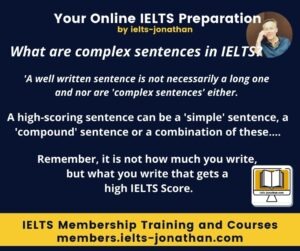
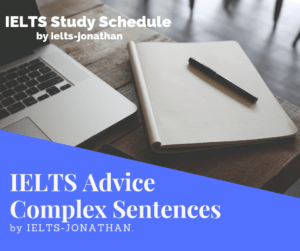
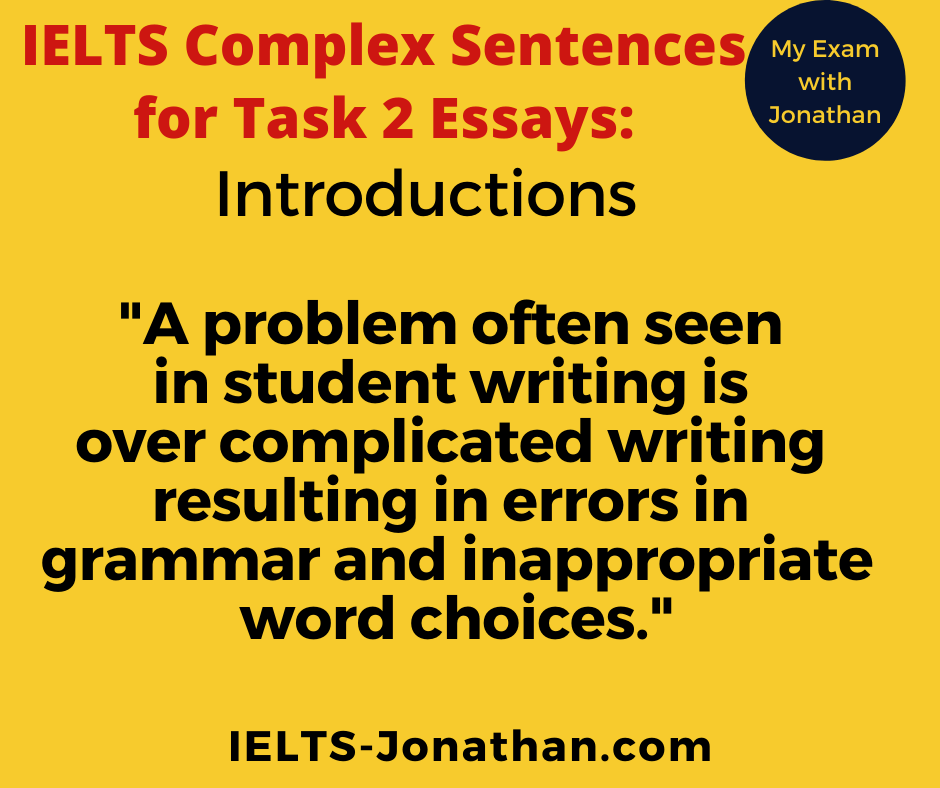

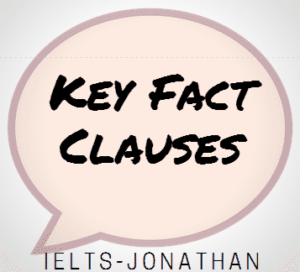
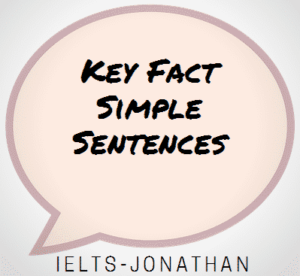
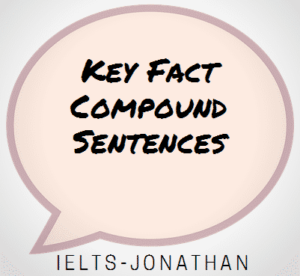
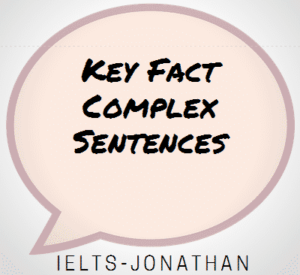
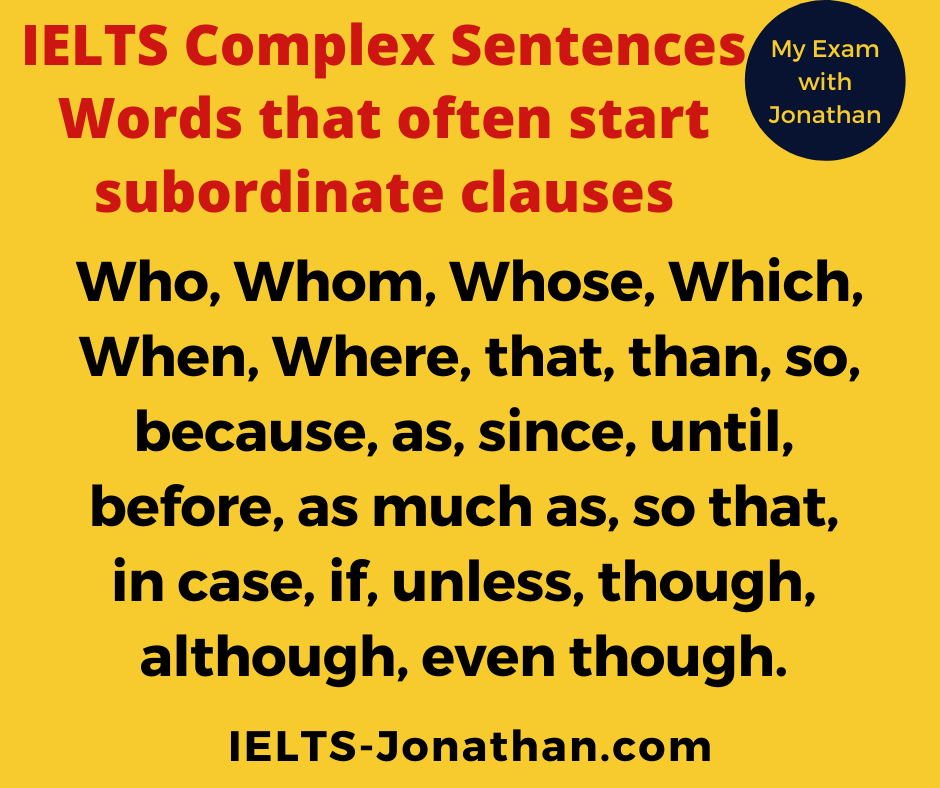
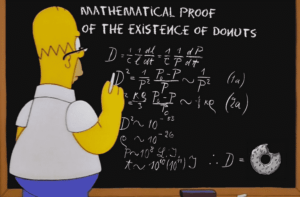
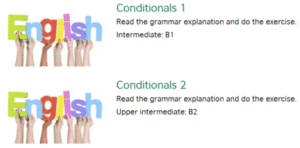


Was this helpful? Leave a comment :)